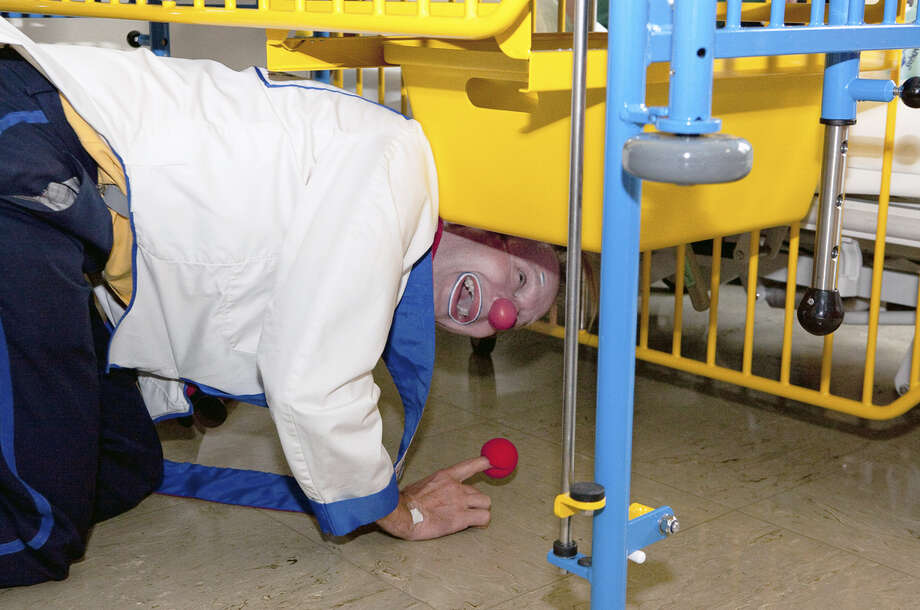
Birds under the bed
Birds under the bed
I am talking to the doctor on duty in the children’s oncology department – getting information on the patients in his ward before I start my visit to the intensive care unit as usual. On the list, there’s Melissa in room 4. She’s a 9 years old girl in in the last stages of her illness. Her bodily functions are shutting down and she can’t see any more, so the doctor assumes it does not make sense going to her room. “Do you mind if I try visiting her?”, I ask. “No, go ahead”, the doctor says. There’s no scepticism in his voice. He knows and respects the work of us healthcare clowns.
When I enter Melissa’s room, her mother looks up at me briefly. The rings under her eyes tell me she hasn’t slept in a long while. Her sad face tells me that all hope is lost – her daughter is dying. I greet Melissa and I immediately start making sounds of a bird whistling. “Ah, what’s this?”, I ask, directing the question to Melissa. “You have a bird under your bed?”. She smiles. Her mother looks up at me surprised. I am sure that, even though she’s blind, Melissa can sense my movements, so I bend down and reach under the bed, making clapping sounds with my hands. “I’ve got it, want to hear it?” Melissa smiles nodding to affirm her interest. We both know it is a game. I think the person most surprised is Melissa’s mother. I sense that Melissa finds it refreshing and fun to be able to be a normal child again and to participate in a game. I put my cupped hands to Melissa’s ear and bend down close to add a bird whistle. Melissa’s smile broadens. Now her mother has moved from surprise to amazement. “What shall I do with it? Should I throw the bird out of the window? Or should I just put it back under your bed, so you have a friend here?” I voice this as a question and Melissa agrees, giggling. I put the imaginary bird back under her bed, adding a few more bird whistles to end the game. Then I pick up my ukulele and start a song about a bird living under a bed, inserting Melissa’s name to personalise it for her. Melissa is laughing out loud. Her mother is smiling while I finish my song and say goodbye to leave the room.
Some weeks later, I return to the same hospital. “Do you remembers Melissa?“ the same doctor asks me. I remember and I wait with dread to hear what I have heard too many times. I will never get used to losing patients. “After your visit“, he says, “Melissa took a 180 degree turn for the better. Her sight and all of her bodily functions returned, and we sent her home!“
I know what they call this – spontaneous remission. However, to me it feels like a true little miracle.
Gary Edwards

